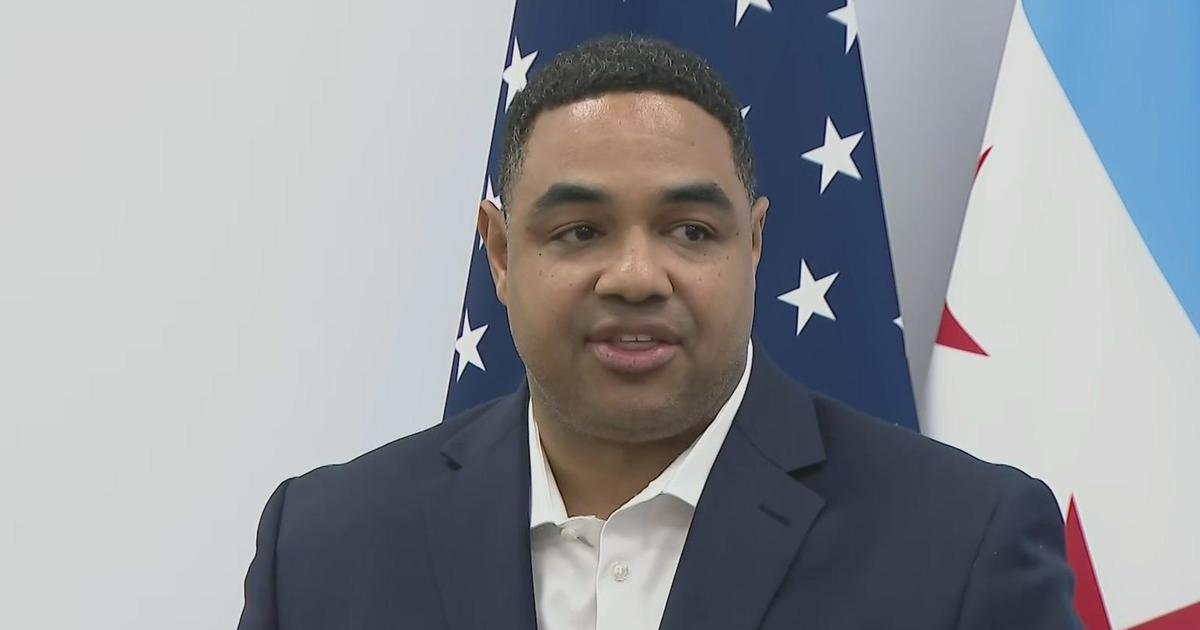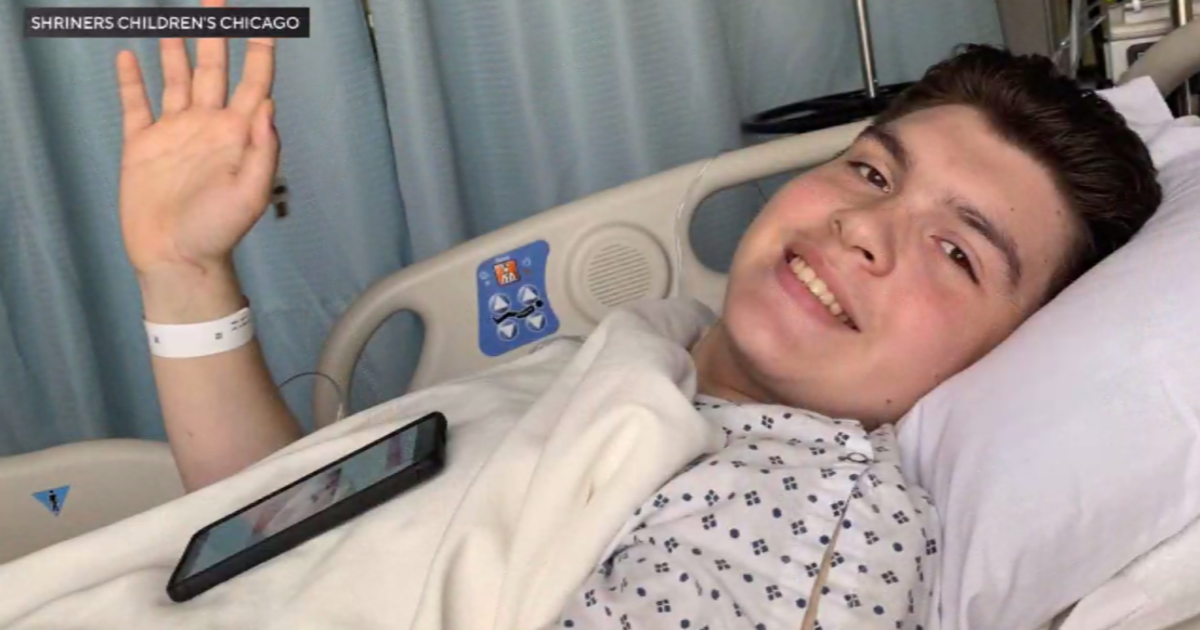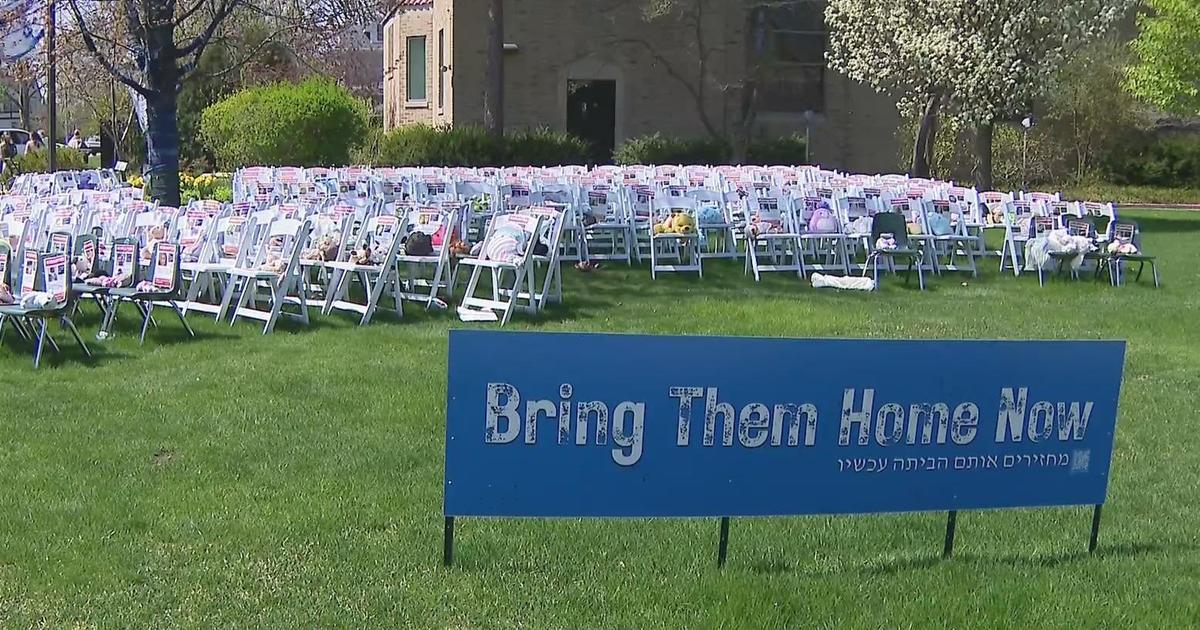Stay-At-Home Order Presents New Challenges For People With Special Needs
CHICAGO (CBS)-- The stay-at-home order is hard on everyone, but for families who have children with special needs, quarantine presents special challenges.
According to experts, 80% of children with special needs are faring worse since the shutdown began. That's because they're missing out on essential programming, therapy and socialization.
CBS 2 spoke with two mothers who feel isolated and forgotten.
"They're called special needs, you know, special needs children, they're given special accommodations and education and the pandemic hits and they ain't nothing special," Jenny Moss said.
For Norma Mendez, the isolation has basically become even larger isolation.
Moss and Mendez have worked for decades, setting up thoughtful, specific and rigorous programming for their children with special needs.
And in an instant, that support system was yanked away.
"My heart is breaking for my daughter who is so social," Moss said. "It's just so stressful for her. I just hope it's not permanent damage."
Moss' daughter, Kaede is 21. She has Angelman's Syndrome and Autism.
"Her whole world is shattered," Moss said. "She doesn't get this."
Jennifer is single, overwhelmed and can't work right now because she has to stay home and take care of Kaede.
Mendez has twin 21-year-old sons George and Giovanni who both have autism. She is currently home on unpaid FMLA so she can care for her boys, who were just about to transition to programming that would teach them life and job skills.
Now, since zoom meetings only agitate her non verbal sons, she comes up with her own "lesson plans."
"Me, you know, we empty out the dishwasher and we put dishes way, putting in laundry and getting laundry out," She said.
CBS 2 reached out to Christina Yun, an advocate from Access Living who specializes in education policy.
Yun says parents of children with specail needs should document specifically how or if their schools' programming is insufficient, which would enable them to apply for compensatory programming when this is all over.
CBS 2 has a list of resources for families in need of assistance:
[scribd id=462945691 key=key-YNXDgyIUKnS7e582Sauo mode=scroll]
For special education and remote learning, parents can reach out to the
- Chicago Public Schools Diverse Learners Helpline: 773-553-1840, odlssparentsupport@cps.edu
- Access Living: 312-640-2100, Contact Us Online
- Legal Council for Health Justice Frequently Asked Questions for Parents, 312-427-8990
- Equip for Equality Special Education Helpline: 1-866-543-7046
For unemployment benefits:
- Legal Aid Chicago: 800-445-9025
- Pandemic Unemployment Assistance (PUA) is available for parents who is a primary caregiver for a child or person who is unable to attend school or another facility closed due to COVID-19,
For parent support:
- Chicago Public Schools Meal Sites: cps.edu/coronavirus
- JCFS Chicago: Redefine What's Possible at Home Facebook Group
Yun provided CBS 2 with a Q & A to further explain resources and answer questions parents may have during this time.
Does my child with special needs have to wear a face mask?
The answer is: NO, if a child with a disability refuses to wear a mask because of his/her disability related reasons, such as autism, the child should be allowed not to wear a mask in public or in a store.
Here is a link to the State of Illinois FAQ for Businesses Concerning Use of Face-Coverings During COVID-19:
Does my child need to wear a face-covering?
Yes. If your child is over two years old and does not have a medical condition or disability that prevents them from safely wearing a face-covering (such as respiratory, heart, or sensory issues), then your child is required to wear a face-covering if they are outdoors and unable to maintain a six foot distance from others or if they are in an indoor public space such as a store.
Can a store or business turn me away if I do not have a face-covering?
Yes. A store or business can generally prohibit you from entering the building if you do not have a face-covering in order to protect the health of others. However, if you have a medical condition or disability that prevents you from safely wearing a face-covering, then you should speak with a store employee about a reasonable accommodation to help you obtain the services you need without endangering your health or the health of other shoppers. For more information, please see the questions on reasonable accommodations.
Do I have to prove I have a medical condition or disability that prevents me from wearing a face-covering?
No. Proof of a medical condition or disability is not required. It is enough to communicate that you have a medical condition or disability that prevents you from safely wearing a face-covering. You should speak to the business about how your medical condition or disability can be accommodated, for example, through shopping at off-peak times or using delivery services. For more information, please see the questions on reasonable accommodations.
Is physical therapy is essential?
Yes
If I am a caretaker whose job was affected by the state shutdown, am I eligible for unemployment under the Pandemic Unemployment Assistance Cares Act? I
Yes
Will my child with special needs be eligible for compensatory educational programming when the shutdown is over?
Yes, but you need to keep detailed notes about how the "virtual or remote" learning is inadequate and insufficient when it comes to helping your child meet the goals outlined in his or her IEP. Even if your child is aging out (turning 22 during the pandemic shutdown), he or she should still be eligible for compensatory education.
Will I be able to join my adult child with special needs at the hospital as his or her advocate or guardian?
That depends on the hospital. Governor JB Pritzker has issued a recommendation, but it is not law.
How do I know if my non verbal child could be sick with the coronavirus?
Trust your instincts. If you think something is wrong, call your doctor. Medical signs to watch for: fatigue, fever, and changes in blood pressure.



